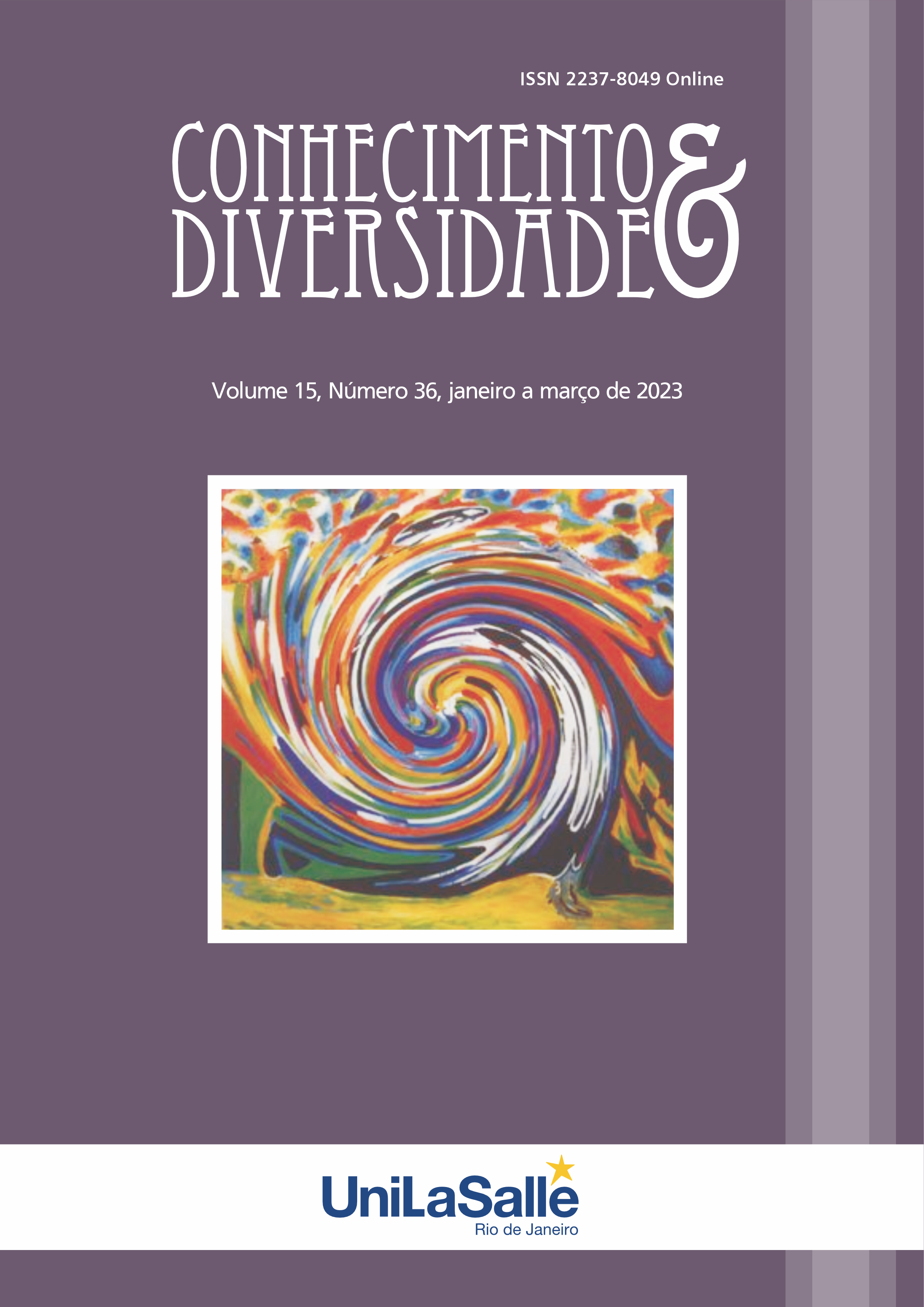FORMATION OF STUDENTS' ENVIRONMENTAL AWARENESS THROUGH SOCIAL MEDIA
DOI:
https://doi.org/10.18316/rcd.v15i36.10973Keywords:
Environmental educational strategy, Environmental awarenees, Rules of ecological life, Social media, Environmental educationAbstract
Implementation of students' environmental education in the context of rapid economic and social development is one of the priority tasks of forming a society, which is impossible without the active participation of higher education institutions, as well as awareness of the need for environmentally friendly use of natural resources and a frugal attitude towards nature. Furthermore, students are the driving force that can influence the state of the environment in the future, so it is extremely important today to organize the educational process to familiarize children and youth with environmental issues. The basis for the implementation of an effective environmental education strategy is the maximum unification of efforts for an effective result based on the definition of reference positions in formal and non-formal environmental education, the formation of the child's ability to purposefully observe, study and correctly evaluate objects and phenomena in the process of observation from the point of view of environmental thinking. This article aims to identify the key features of forming environmental awareness in students through social media. Methodology. During this study, analytical and bibliographic methods were used to study the scientific literature on the development of environmental awareness, as well as synthesis, analysis of information, system-structural, comparative, logical, and linguistic methods, abstraction, idealization, induction, a deduction for studying and processing data, and a questionnaire survey conducted by the authors of the study online to practically clarify the most critical issues related to the formation of environmental awareness in students using social media. Results. The study identified the leading, most important theoretical aspects of the issue of environmental awareness, as well as the point of view of scientists and university professors on the critical aspects of this issue.
References
Aldieri, L., Carlucci, F., Vinci, C. P. & Yigitcanlar, T. (2019). Environmental innovation, knowledge spillovers and policy implications: A systematic review of the economic effects literature. Journal of Cleaner Production, 239. https://doi.org/10.1016/j.jclepro.2019.118051.
Aleixo, M. & Leal, S. (2018). Conceptualization of sustainable higher education institutions, roles, barriers, and challenges for sustainability: An exploratory study in Portugal. Journal of Cleaner Production, 172, 1664–1673. https://doi.org/10.1016/j.jclepro.2016.11.010.
Budihardjo, M., Bimastyaji, S., Soraya, A., Indah, F. & Fadel, I. (2021). Towards Sustainability in Higher-Education Institutions: Analysis of Contributing Factors and Appropriate Strategies. 13. https://doi.org/10.3390/su13126562 118051.
Chankseliani, M. & McCowan, T. (2021). Higher Education, 81, 1–8. https://link.springer.com/content/pdf/10.1007/s10734-020-00652-w.pdf.
Chen, M. & Xiao, X. (2022). The effect of social media on the development of students’ affective variables. Frontiers in Psychology, 13. https://www.frontiersin.org/articles/10.3389/fpsyg.2022.1010766/fullhttps://doi.org/10.3389/fpsyg.2022.1010766.
Findler, F., Schönherr., F., Lozano, Т., Reider, D. & Martinuzzi, A. (2019). The impacts of higher education institutions on sustainable development: A review and conceptualization. International Journal of Sustainability in Higher Education, 20, 4. https://www.researchgate.net/publication/330091766_The_impacts_of_higher_education_institutions_on_sustainable_development_A_review_and_conceptualization. https://doi.org/10.1108/IJSHE-07-2017-0114.
Francisco, L., Jorge, M., Oswaldo, M., Buitrago, S., Javier, J. & Escobar, V. (2021). Environmental Sustainability in Higher Education: Mapping the Field. Revista Electronica de Investigacion Educativa https://www.researchgate.net/publication/352023648_Environmental_Sustainability_in_Higher_Education_Mapping_the_Field. https://doi.org/10.24320/redie.2021.23.e09.4053.
Godemann, J., Bebbington, J., Herzig, C. & Moon, J. (2021). Higher Education and Sustainable Development Exploring Possibilities for Organizational Change. Accounting Auditing & Accountability Journal, 27, 2, 218–233. DOI:10.1108/AAAJ-12-2013-1553. Retrieved from: https://www.researchgate.net/publication/259573757_Higher_Education_and_Sustainable_Development_Exploring_Possibilities_for_Organisational_Change Higher education and the Sustainable Development Goals.
Hess, D. & Maki. A. (2019). Climate change belief, sustainability education, and political values: assessing the need for higher-education curriculum reform. Journal of Cleaner Production, 228, 1157–1166. https://www.sciencedirect.com/science/article/abs/pii/S0959652619313824.
Kousar, S., Afzal, M., Ahmed, F. & Bojnec, Š. (2022). Environmental Awareness and Air Quality: The Mediating Role of Environmental Protective Behaviors. Sustainability, 14 (6), 3138. https://www.mdpi.com/2071-1050/14/6/3138. https://doi.org/10.3390/su14063138.
Locatelli, R. (2018). Education as a public and common good: reframing the governance of education in a changing context – UNESCO Digital Library. UNESCO. Retrieved from: https://unesdoc.unesco.org/ark:/48223/ pf0000261614.
Mallick, R. & Bajpai, S.P. (2019). Impact of Social Media on Environmental Awareness. In book: Environmental Awareness and the Role of Social Media (pp. 140–149). https://www.researchgate.net/publication/345630547_Impact_of_Social_Media_on_Environmental_Awareness https://doi.org/10.4018/978-1-5225-5291-8.ch007.
Mandryk, O., Malovanyi, M. & Orfanova, M. (2019). Ekolohichna osvita dlia staloho rozvytku. Ekolohichna bezpeka ta zbalansovane resursokorystuvannia [Environmental education for sustainable development. Environmental safety and balanced resource use,], Naukovo-tekhnichnyi zhurnal, 1, 19. 10.31471/2415-3184-2019-1(19)-130-139. http://elar.nung.edu.ua/bitstream/123456789/7387/1/7178p.pdf. [in Ukrainian].
Marta, A., Leal, S. & Miranda, U. (2018). Conceptualization of sustainable higher education institutions, roles, barriers, and challenges for sustainability: An exploratory study in Portugal. Journal of Cleaner Production, 172, 1664–1673. https://doi.org/10.1016/j.jclepro.2016.11.010.
McCowan, T. (2019). Higher Education for and beyond the Sustainable Development Goals. Palgrave Macmillan. https://link.springer.com/article/10.1007/s10734-020-00652-w#citeas.
Rivera-Torres, P. & Garcés-Ayerbe, C. (2018). Development of pro-environmental conduct in individuals and its determinants. REIS, 163, pp. 59–78. https://www.ingentaconnect.com/contentone/cis/reis/2018/00000163/00000163/art00004.
Sachs, J., Schmidt-Traub, G., Mazzucato, M., Messner, D., Nakicenovic, N. & Rockström, J. (2019). Six Transformations to achieve the Sustainable Development Goals. Nature Sustainability. https://doi. org/10.1038/s41893-019-0352-9.
Skrypnyk, S., Shevchenko, S. & Zamoroka, A. (2021). Naukovo-metodychni zasady vprovadzhennia metodiv ekolohichnoi osvity i vykhovannia v protsesi navchannia biolohii [Scientific and methodological principles of implementation of methods of ecological education and upbringing in the process of teaching biology]. Zbirnyk naukovykh prats Natsionalnoi akademii Derzhavnoi prykordonnoi sluzhby Ukrainy Seriia pedahohichni nauky 23, 4, 307–326. https://www.researchgate.net/publication/350465801_NAUKOVO-METODICNI_ZASADI_VPROVADZENNA_METODIV_EKOLOGICNOI_OSVITI_I_VIHOVANNA_V_PROCESI_NAVCANNA_BIOLOGII. https://doi.org/10.32453/pedzbirnyk.v23i4.591 [in Ukrainian].
Unterhalter, E., Allais, S., Howell, C., McCowan, T., Morley, L., Ibrahim, O. & Oketch, M. (2018). Conceptualizing Higher Education and the Public Good in Ghana, Kenya, Nigeria, and South Africa. Presented at the CIES 2018 Annual Conference, Mexico City, Mexico. Retrieved from: https://discovery.ucl.ac.uk/id/eprint/10050089/.
Valero-Gilab, J., Leyva-de la Hizc, D., Rivera-Torresd, P. & Garcés-Ayerbe, C. (2021). Educating for the future: How higher education in environmental management affects pro-environmental behavior. Journal of Cleaner Production, 321, 25, 128972. https://doi.org/10.1016/j.jclepro.2021.128972.
Downloads
Published
Issue
Section
License
Copyright (c) 2023 Antonina Lovochkina, Dariia Otych , Liubov Spivak

This work is licensed under a Creative Commons Attribution 4.0 International License.
As recommended by the Public Knowledge Project, RCD adopts for its articles a CREATIVE COMMONS Attribution CC BY 4.0 license.
This license allows others to distribute, remix, adapt and build upon your work, even commercially, as long as they credit you for the original creation.
This is the most appropriate license offered.
Recommended for maximum dissemination and use of licensed materials.



